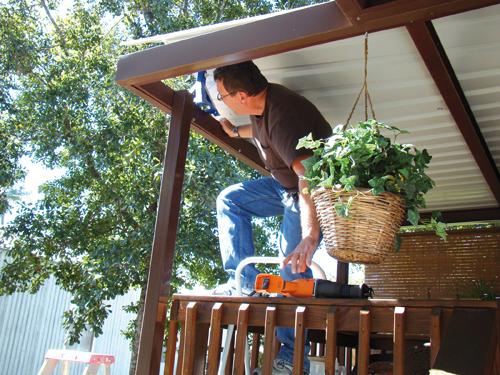Phuket Property: To raise one’s roof or not to

PHUKET: I am often asked how much one should spend on a primary residence, and while this is an area open for debate, my answer usually surprises people.
I have always been baffled by arguments about mortgage interest being tax deductible and many other reasons to sink way too much into one’s primary residence. This doesn’t mean I don’t think a good portion of one’s assets ought to be in real estate; however, many people place too high an emphasis on expectation of capital appreciation from their residence and not enough on short term cash flow.
I think my beliefs are best summed up by Ed Kiyosaki, the famous author of “Rich Dad, Poor Dad’. He says that if your home is your biggest investment you have serious trouble. His argument is that contrary to modern accrual-based accounting methods, one should look at things from a pure cash flow perspective and try to accumulate cash flow-positive investments.
Your primary residence is cash flow negative usually; you need to sink money into it to maintain it and you only unlock cash when you finally sell it (but then have to replace it and thus use some/all of that cash). A rental property on the other hand, is usually cash flow positive, assuming you price it so that it doesn’t sit empty.
So basically, from a financial planning perspective, a mistake I think many people make is allocating all or too much of their real estate investments in their own home. To make the concept simple, let’s depart from reality for a moment and assume square meters are a commodity and each one costs the same amount. If you can afford 500 square meters of living space, this is usually what most people sink into their own home.
Of course, they may only really need about 200 square meters to live comfortably, but most people take a lot of pride in showing their friends what a nice big house they live in. They don’t realize the opportunity cost of all those unneeded square meters. If they bought two properties of 250 square meters each, they could rent one out and have a significant positive cash flow investment. Again I am assuming the rental yield makes sense, while in reality sometimes it doesn’t.
If you have a 10 million Baht budget, you could realistically end up better off in the long run by splitting that money across two properties as opposed to sinking it all into one. Both would appreciate if the local market keeps going up, but one would be generating some positive cash flow in the meantime.
Warren Buffet is famous for saying that his favorite holding period is forever. Of course if you get a chance to cash out large gains after a market has run up this doesn’t mean that you shouldn’t do so. Yet if you continuously accumulate cash flow generating properties and especially if you diversify geographically, eventually you will build up an equivalent to an annuity that has a natural inflation hedge built in, assuming you have a long term investment horizon.
David Mayes MBA resides in Phuket and provides wealth management services to expats around the globe, focusing on UK pension transfers. Email david.m@faramond.com or call 085-335-8573.
This article appears in the current issue (Jul 27-Aug 2) of the hard-copy Phuket Gazette newspaper, now on sale at newsstands throughout the island. Digital subscribers may download the full issue, this week and every week, by clicking here.
Keep checking our online Phuket Property pages for local and national property updates, alternatively ‘Like’ us on our Facebook fan page or follow us on Twitter.
— David Mayes
Latest Thailand News
Follow The Thaiger on Google News:


























